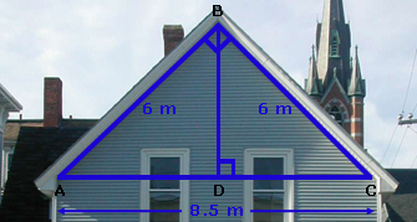Numeracy and Mathematic
Numeracy and Mathematics – Similar but Not Really
(Image retrieved from http://blogs.sunvalleygroup.co.za/mike-thiem/files/2014/11/funny-math-equations-quote.jpg)
Both mathematics and
numeracy deals with numbers so they are the same right? Not really; Mathematics
is a field of study that is taught in schools such as geometry, algebra,
trigonometry, percentages, and all other boring stuff whereas numeracy
incorporates the mathematical skills to apply it into the real world.
Numeracy
|
Mathematics
|
|
|
|
Working
Mathematically in the Early Years (2015)
Steen (2001) states that “Mathematics by definition and tradition is abstract and Platonic, dealing with universal truths and relations among ideal objects. Quantitative literacy, in contrast, is concrete and contextual, dealing with contingent inferences drawn from specific facts about real objects or events.” In numeracy, numerate individuals will use their mathematical knowledge to work out currency exchange rates, work out which deal is better for discounts, manage finance, plan journeys, work out GST, bills, following cooking/building instructions, kitchen work triangle, etc.
Numeracy Outside of Schools
In classroom environments
where a child is learning Pythagoras theorem, they may not understand why the
formula is used and uses the formula for the sake of completing the textbook.
In the real world, builders will use Pythagoras theorem indirectly with the
three four five method to build square corners as it has a ninety-degree
angle.
Whilst both mathematics
and numeracy are similar and different, they complement each other. For
numerate individuals to apply mathematical skills, they first need to know
mathematics and be able to measure, estimate,
calculate, recognize patterns and relationship as well as understanding why you
need to apply certain formulas.

(Image retrieved from http://bradencareerconnection.weebly.com/uploads/5/9/8/8/59889375/643059947.jpg?417)
21st Century Skills
– What is it and why is numeracy important
21st
century skills are a set of skills needed by students to help them compete in
the increasing and demanding marketplace in today’s society. These skills are
essential for students to become competent adults and be active members of
society. The 21st century skills are broken into 3 categories:
-
Learning skills
o
Critical thinking, creativity, collaboration,
communication
-
Literacy skills
o
Information literacy, media literacy,
technology literacy
-
Life skills
o
Flexibility, leadership, initiative,
productivity, social
21st
Century skills (2018)
(Image retrieved from http://www.p21.org/storage/images/stories/rainbow/Framework-copyrighted.png)
How
do these skills relate to numeracy? Well you do the maths. In the demanding
marketplace mathematics is no longer a requirement
only for prospective scientists and engineers; now some degree of mathematical
or quantitative literacy is required of anyone entering the modern
high-performance workplace or seeking advancement in a career (Mathematical Sciences Education Board,
1995). Numeracy involves critical thinking as students find solutions to
problems using a variety of methods and this then leads to creativity,
collaboration, and communication as students begin to think outside the box and
discuss methods with peers to come to a conclusion. As numerate individuals,
students competently interpret facts,
figures, statistics, and data as well as knowing how it is achieved and as
digital natives, students are constantly using technology in their lives that
incorporates mathematical abilities such as using Microsoft Excel. Anything
could happen even when things are properly planned out, numerate individuals
are flexible in ways that they can deviate from their plans and find new
solutions. So, although Mathematics is boring, you are using that skill to
become numerate and are completing tasks daily without even being aware of it.


Comments
Post a Comment